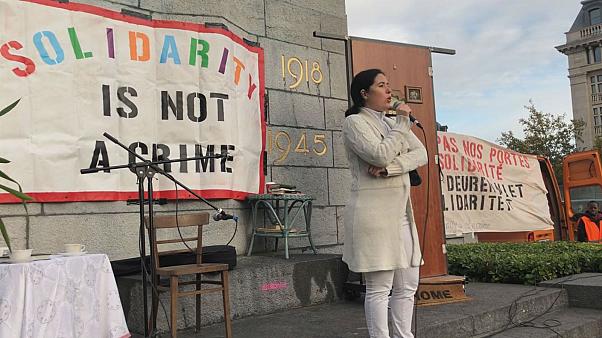
I am very excited that Tess Altman and I are organising a panel at the RAI-RGS Conference called “Helping in an era of hostility: Political agency & moral contestations in civil society movements for & by migrants”.
Refusing the medal bestowed by the Mayor of Paris in August 2019, Pia Klemp, a German captain of migrant search-and-rescue missions in the Mediterranean, stated “I’m not a humanitarian. I am not there to ‘aid’. We do not need authorities deciding who is a ‘hero’ and who is ‘illegal’. What we need are freedom and rights.” Concurrently, Klemp is being criminalised by the Italian government for ‘aiding illegal immigration’ and could face up to 20 years in prison. Her case brings into sharp focus political contestations in the heterogeneous civil society space supporting migrants in Europe that has proliferated since the 2015 long summer of migration (Vandevoordt and Verschraegen 2019). This panel invites an interdisciplinary conversation on the moral and political positionings of civil society actors supporting migrants in Europe and beyond. Though many civil society actors are critical of hostile border regimes, questions have been raised about their ambivalent position in relation to such regimes.
Papers may address (but are not limited to):
• Expressions of political agency by civil society actors
• Migrant perspectives on civil society actors
• Intersections of gender, class or religious differences in relationships between/among civil society actors and/or migrants
• Criminalisation or valorisation of humanitarian efforts
• Distinctions between forms of helping (e.g. humanitarianism, aid, solidarity, welcome, hospitality)
• Collaborations and/or tensions between civil society actors
• Relations between civil society actors and different levels/scales of government (e.g. local, urban, state, national, inter/supranational)
All the information about submitting a paper can be found here: https://nomadit.co.uk/conference/rai2020/p/8343. The call for papers closes on *8 January 2020*.
